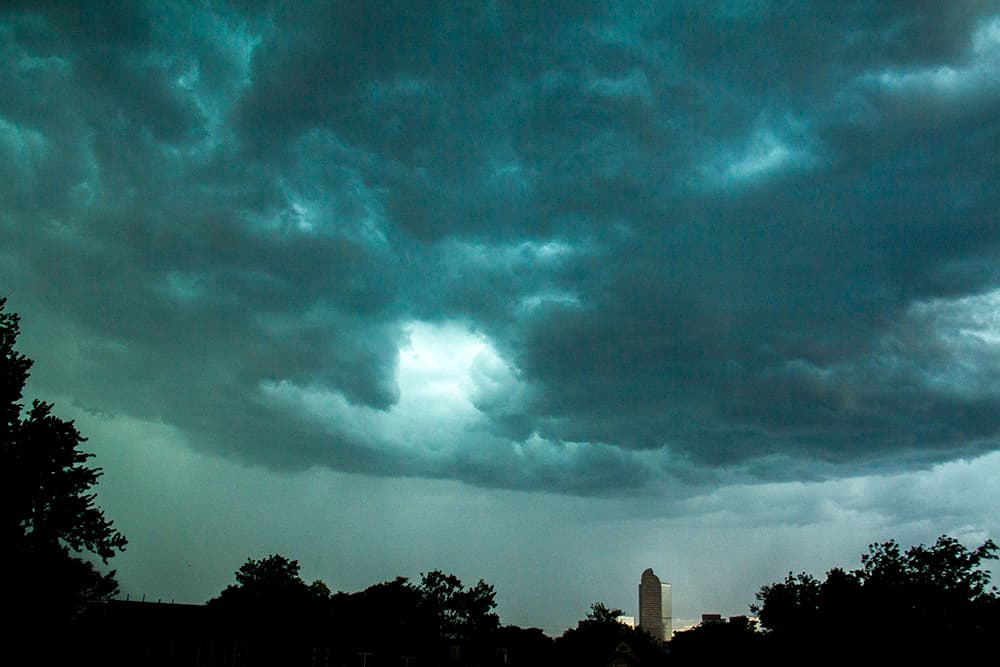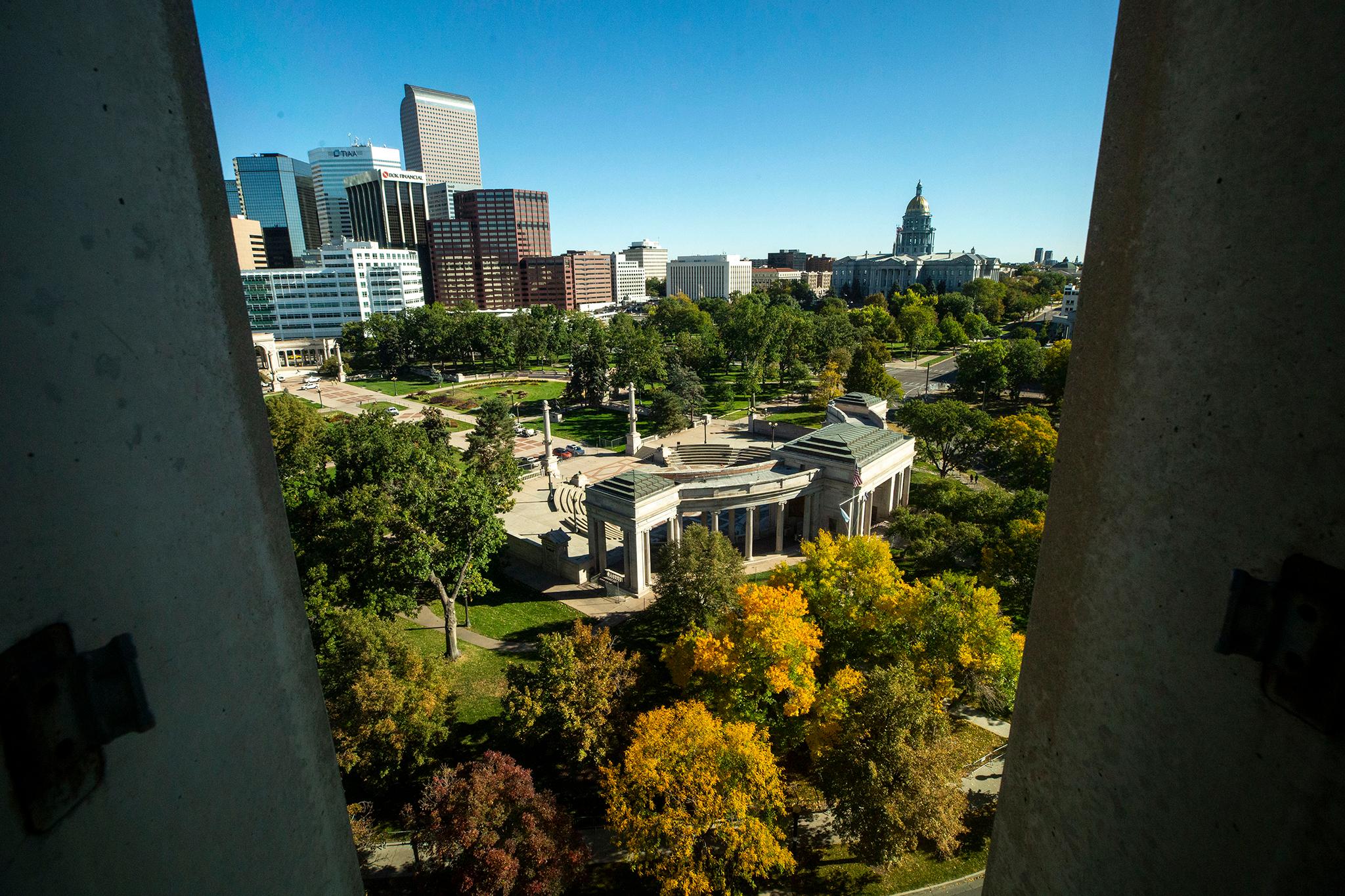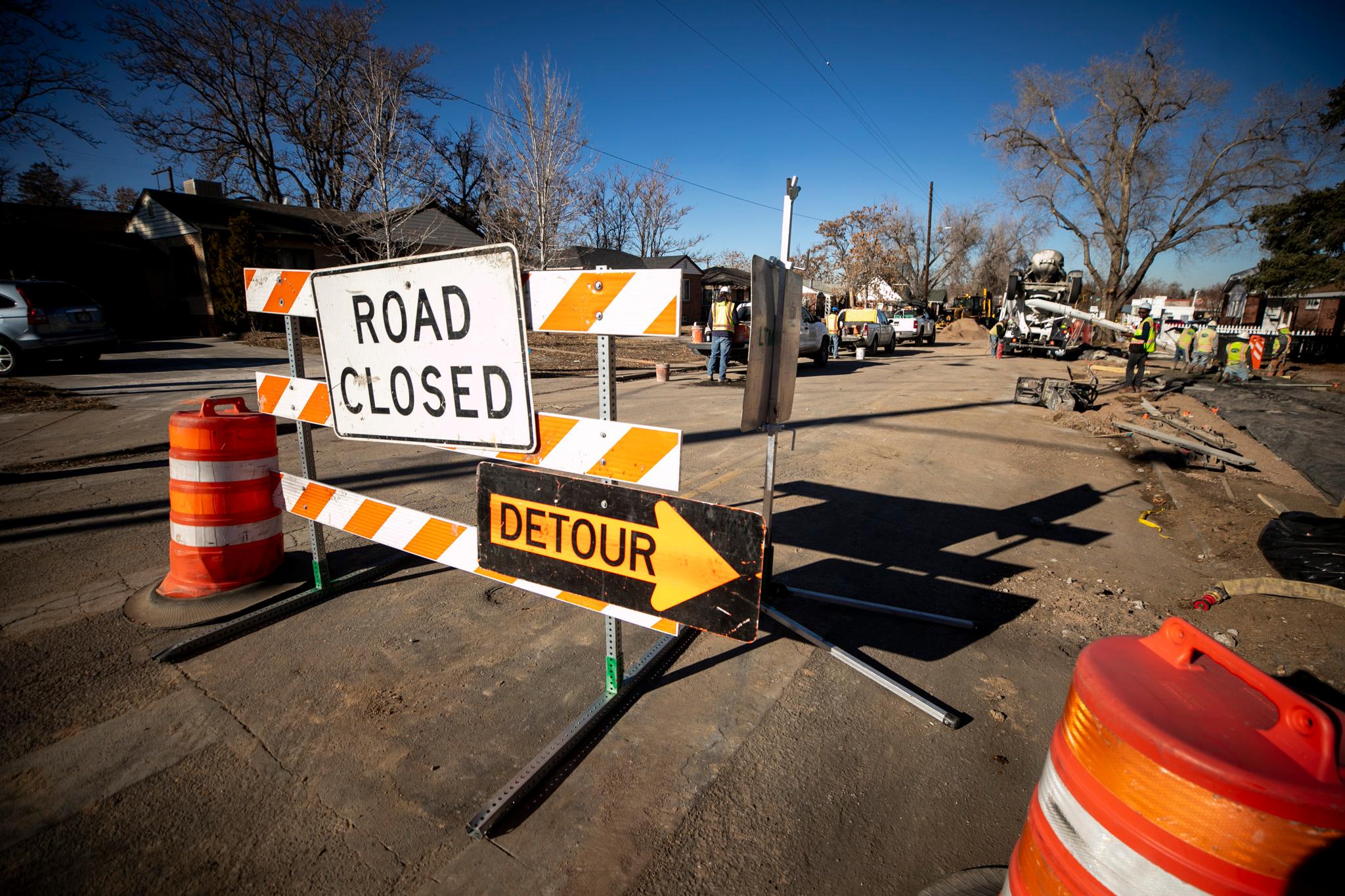
The Rocky Mountain Climate Organization released reports yesterday predicting a more extreme climate in metro Denver and Boulder and Larimer counties.
Stephen Saunders, president of the RMCO and lead author of the report said that "our current path of steadily increasing heat-trapping emissions" will create a climate that is "fundamentally different from the climate we have known in Colorado."
In Boulder County, that means temperatures of 100 degrees or more for an average of eight days a year by mid-century, and an average of 35 days a year late in the century.
In Larimer County, they're predicting those days will come four times a year by mid-century and 23 days a year by the end of the century.
The report for metro Denver is still in the first phase, but early projections are looking at an average of seven days per year over 100 degrees by mid-century and 34 days per year by late century.
Those predictions are for a world in which we continue to release very high emissions. Very low emissions bring the projections down to one or two days a year in which temperatures climb over 100 degrees.
Those reports also project that storms of a half-inch of precipitation or more in one day will be more likely with continued high emissions:
- 16 percent more frequent by mid-century and 36 percent more frequent by late-century in Boulder County;
- 12 percent more frequent by mid-century and 33 percent more frequent by late-century in Larimer County;
- 15 percent more frequent by mid-century and 31 percent more frequent by late-century in metro Denver.
Of course, this isn't the first time the Rocky Mountain Climate Organization has issued warnings about the effects of climate change on Colorado or the West. In 2008, it released a report with the Natural Resources Defense Council that the the West was getting hotter and drier as a result of man-made pollution, and would continue to do so if no action was taken to stop it.
"Responding quickly at all levels of government by embracing the solutions that are available is critical to minimizing further disruption of this region’s climate and economy," the report said.
A 2014 report said "the forests of the Rocky Mountains are facing a triple assault: tree-killing insects, wildfires, and heat and drought," and pegged human-caused global warming as the problem.
You can browse yesterday's full reports over at rockymountainclimate.org.













